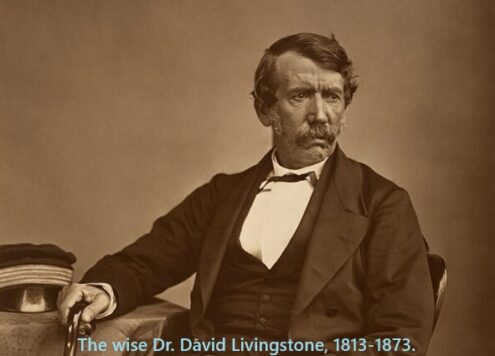What kind of people, I ask myself, would mock a dying man? Who would be so base as to pour the salt of scorn upon open wounds? How low and perverted to sneer at one who is laced with pain. Who would make fun of a person who is seated in an electric chair? Or who would point and laugh at a criminal who has a hangman’s noose around his neck?
You can be sure that Satan and his demons were the cause of such filth.
And then the criminal on cross number two throws his punch.
“Aren’t you the Christ? Save yourself and us?”
The words thrown that day were meant to wound. And there is nothing more painful than words meant to hurt. That’s why James called the tongue a fire. Its burns are every bit as destructive and disastrous as those of a blowtorch.
But I’m not telling you anything new. No doubt you’ve had your share of words that wound. Someone you love or respect slams you to the floor with a slur or slip of the tongue. And there you lie, wounded and bleeding. Perhaps the words were intended to hurt you, perhaps not; but that doesn’t matter. The wound is deep. The injuries are internal. Broken heart, wounded pride, bruised feelings.
If you have suffered or are suffering because of someone else’s words, you’ll be glad to know that there is a balm for this laceration. We find solace in the cross.
Do you see what Jesus did not do? He did not retaliate. He did not bite back. He did not say, “I’ll get you!” “Come on up here and say that to my face!” “Just wait until after the resurrection, buddy!” No, these statements are not found on Christ’s lips.
Do you see what Jesus did do? He “entrusted himself to Him who judges justly.” Or said more simply, he left the judging to God. He did not take on the task of seeking revenge. He demanded no apology. He hired no bounty hunters and sent out no posse. He, to the astounding contrary, spoke on their defense.
“Father, forgive them; for they do not know what they are doing.”
-Max Lucado











3 Comments
Lois Bradley
Thanking you again Father Duffy as this message has come to me at a very important time in my life and with it I know I will have help from the Holy Sprit to do the right things. Love the video the old Rugged Cross was one of my Dads favorite.
PJH
Looks like the evil ones are evident. So sorry for the sickly intrusion Fr.Duffy. Jesus I trust in you.
Robert Galligan
Thank you Father.